When you’re dealing with car maintenance, one of the most frustrating things that can happen is having your fuel pump fail. It leaves you stranded, dealing with repair shops, and shelling out cash for a replacement.
If you’re reading this, you’re probably considering a Delphi fuel pump, either because you’ve heard about it or because it’s listed as compatible with your vehicle. But is Delphi really the right choice for your car?
Let’s break it down and see if this fuel pump is worth your investment.
My Experience With The Delphi Fuel Pump
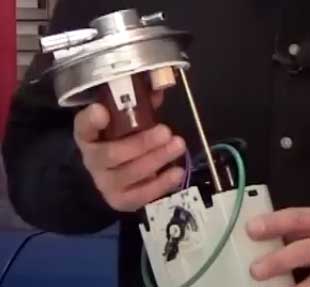
When I first decided to replace my fuel pump, I went with Delphi based on its solid reputation and the promise of OEM-quality parts.
My vehicle had been stalling intermittently, and after some research, Delphi seemed like a reliable option for durability and performance.
The installation process was fairly straightforward, though I did hit a small snag when I realized I needed to modify the wiring.
Delphi pumps are supposed to be direct replacements, but in my case, it required splicing the new plug in, which was a bit frustrating.
This wasn’t the “plug-and-play” experience I had hoped for, especially considering the price.
Once installed, however, the pump worked like a charm. I noticed an immediate improvement in my vehicle’s performance — no more stalling, smoother starts, and more consistent fuel delivery.
It’s been a few months now, and the Delphi pump has been performing well, even in extreme temperatures where other pumps might struggle.
That said, if you’re not comfortable with some minor wiring adjustments, it might be worth looking into other brands that provide easier installation or include updated wiring harnesses.
Overall, I’m satisfied with the product, but the installation hiccup would make me cautious about recommending it for everyone. If you’re patient and willing to tinker, Delphi’s durability and long-term performance make it a solid choice.
Pros of Delphi Fuel Pumps
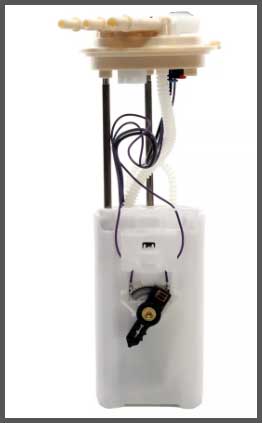
- OEM Quality Fitment One of Delphi’s selling points is its commitment to Original Equipment Manufacturer (OEM) standards. This means the parts should be a direct replacement for the original pump in your vehicle. In my case, the pump matched the exact specifications of my car’s previous pump, which helped the installation process go smoothly. However, it’s important to note that Delphi’s design hasn’t necessarily kept up with every vehicle modification, which I’ll discuss in the cons section.
- Robust Testing for Durability Delphi fuel pumps undergo rigorous testing to ensure they can withstand extreme temperatures, from scorching hot summers to freezing winters. This is especially reassuring for people living in areas with fluctuating climates. The brand has a strong reputation for reliability under harsh conditions, so you can expect it to hold up over time.
- Comprehensive Warranty Delphi offers a limited lifetime warranty on its fuel pumps, which is a significant plus for anyone worried about premature failure. While fuel pumps can fail for a variety of reasons (often related to fuel quality or driving conditions), having a solid warranty gives you peace of mind.
- Trusted Heritage With over 80 years of experience in the automotive industry, Delphi brings a level of heritage and trust that some newer, aftermarket brands just can’t match. If you’re someone who values experience and a strong brand reputation, this might sway you toward Delphi.
Cons of Delphi Fuel Pumps
- Wiring Issues One of the biggest complaints from buyers, including myself, is that some Delphi pumps don’t come with updated wiring harnesses. This means you might need to splice wires or make adjustments to get the pump to work with your car’s existing wiring system. For a pump that’s marketed as an OEM replacement, this extra step can be frustrating, and it’s something that cheaper aftermarket options often include. In my situation, I was expecting a plug-and-play setup, but instead, I had to modify the harness to fit. This added extra time and hassle that I wasn’t prepared for.
- Mislabeling and Reboxed Parts Several reviews, and even my own experience to some extent, mention issues with receiving reboxed or mislabeled parts. If you’re purchasing from Amazon or other third-party retailers, there’s a risk of getting a mislabeled item or an incorrect pump. I initially received a pump that didn’t fit my vehicle because of labeling issues, which delayed the entire repair process.
- Potential Compatibility Issues While Delphi is known for producing high-quality products, their fuel pumps may not always be up to date with the latest vehicle modifications or service updates. Some users have reported needing additional wiring adapters that aren’t included, especially in older vehicles like my 1998 Blazer. This added expense and frustration can be a dealbreaker for those looking for a simple, hassle-free replacement.
Maintenance Tips For Your Delphi Fuel Pump
Taking care of your Delphi fuel pump can significantly extend its lifespan and prevent premature failure. Here are a few tips to ensure your pump stays in good condition:
- Keep Your Tank Clean Before installing a new fuel pump, make sure to check the fuel tank for any debris, rust, or corrosion. Contaminated fuel is one of the leading causes of fuel pump failure, and a clean tank can help your new pump perform at its best. Delphi even notes that 21% of returned fuel pumps failed because they operated in contaminated systems.
- Avoid Running on Empty Try to avoid letting your fuel level drop too low. Running your vehicle on an empty tank can cause the pump to overheat since it’s no longer fully submerged in fuel. Keep your tank at least a quarter full to maintain the health of your pump.
- Use High-Quality Fuel Cheap or contaminated fuel can damage your fuel pump over time. It’s always a good idea to use fuel from reputable gas stations to avoid introducing any contaminants into your system.
Comparing Delphi To Other Brands
When comparing Delphi to other fuel pump brands, a few key factors come to mind: price, durability, and ease of installation.
- Delphi Vs. Carter Universal Electric P4070 Fuel Pump
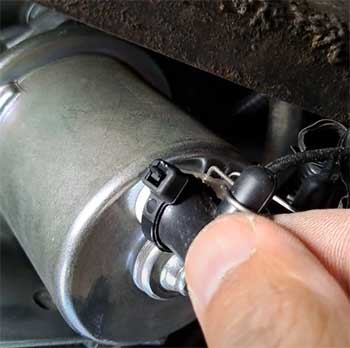
The Carter Universal Electric P4070 Fuel Pump is known for its affordability and versatility, making it a popular choice for those who need a universal fit across various vehicles.
One of the standout features of the Carter pump is its ease of installation, especially in older vehicles or custom builds where finding an exact match can be difficult.
It comes with clear installation instructions and a simple wiring process, which many users find helpful.
In comparison, Delphi offers OEM-quality pumps that are designed for specific vehicles, providing a more precise fit.
While this can be an advantage for those who want an exact replacement, it also means that installation can sometimes be more complicated, particularly if the wiring harness isn’t up to date.
If you need a pump for a custom vehicle or an older model, Carter’s universal design may be a better option for ease of use. However, Delphi may be a more reliable choice in terms of long-term durability and performance under extreme conditions.
- Delphi Vs. TruGrade Fuel Pump
TruGrade is known for offering budget-friendly fuel pumps, making it a good option for those who need an immediate replacement but are tight on cash.
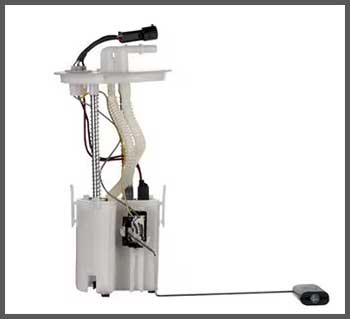
While TruGrade pumps generally get the job done, they often fall short in terms of durability and long-term performance.
Many users have reported issues with early failure, which can be frustrating if you’re looking for a long-lasting solution.
On the other hand, Delphi pumps, though more expensive, are known for their durability and ability to withstand extreme temperatures.
With a limited lifetime warranty, Delphi offers peace of mind for those looking for a long-term solution.
If you’re willing to spend a bit more upfront for a fuel pump that lasts, Delphi is likely the better choice. However, if you’re in a pinch and need a quick, cost-effective fix, TruGrade may be a viable short-term option.
- Delphi Vs. Herko Automotive 144GE – Fuel Pump
Herko Automotive 144GE Fuel Pump is another competitor in the market, and it’s often praised for being a budget-conscious alternative to higher-end brands like Delphi.
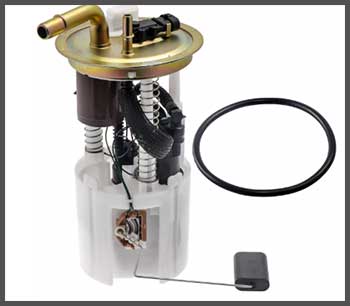
Herko pumps are relatively affordable, but like TruGrade, they can sometimes lack the long-term reliability that Delphi offers.
While Herko products are generally well-reviewed for their price, some users have noted issues with early wear and tear, especially in more extreme driving conditions.
Delphi, by contrast, is designed to withstand harsher environments and is rigorously tested for durability.
If you drive in extreme temperatures or conditions, Delphi might be the more reliable choice.
However, if you’re looking for a more affordable option and are willing to compromise on durability, Herko Automotive 144GE might serve your needs, especially if you’re using it in less demanding environments.
Frequently Asked Questions (FAQ)
Yes, Delphi fuel pumps are generally known for their high quality and durability, particularly in extreme conditions. They’re designed to meet OEM standards, making them a reliable choice for many vehicles. However, some users report wiring issues that may require additional steps during installation.
Delphi fuel pumps are designed to last between 7-10 years, depending on factors like driving conditions, fuel quality, and maintenance habits. Proper care, such as using clean fuel and avoiding running your tank near empty, can help extend the pump’s lifespan.
Yes, Delphi is considered an OEM-quality brand, meaning their parts are manufactured to the same specifications as the original parts in your vehicle. This ensures a reliable fit and performance.
The best fuel pump brand depends on your vehicle and priorities. Delphi, Bosch, ACDelco, and Airtex are all popular options, with each offering different advantages in terms of price, durability, and installation ease. Bosch and ACDelco tend to offer better installation experiences, while Delphi is a solid choice for durability and warranty.
Conclusion: Should You Buy a Delphi Fuel Pump?
So, is Delphi the right choice for your next fuel pump?
It depends on your priorities. If you value a brand with a strong reputation, solid warranty, and good performance under extreme conditions, Delphi could be a solid option.
However, if you’re looking for a seamless installation experience or need the latest wiring compatibility, you might find yourself frustrated with some of Delphi’s shortcomings.
Personally, I found the Delphi fuel pump to be reliable once it was installed, but the extra wiring steps and potential for mislabeled parts made the process more stressful than it needed to be.
If you’re comfortable with some minor adjustments or modifications, Delphi is worth considering. But if you’re looking for a hassle-free, plug-and-play option, you might want to explore other brands like Bosch or ACDelco.
Ultimately, while Delphi’s quality is generally good, I would hesitate to recommend it unless you’re prepared for the possible installation challenges.

